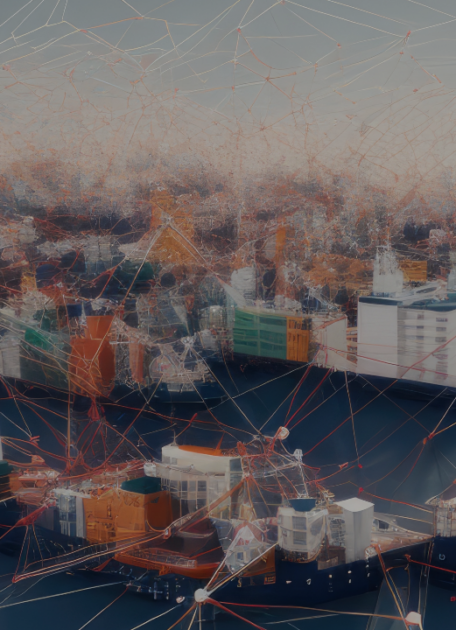Procurement Excellence in a Global Chemical Company
EMEA-wide program to transform procurement and deliver significant cost savings in the petrochemical industry
Our client is a global petrochemical company with annual sales of approximately $14 billion and locations in more than 30 countries. As part of a comprehensive corporate transformation, we were commissioned to optimize procurement in the EMEA region.
Materials & Process Industry
Objective: Strengthen strategic procurement and reduce costs
The company has grown in recent years through extensive merger and acquisition activity. As a result, procurement was organized in a decentralized manner with different specifications in the 25 European plants spread over 15 countries. There was little cross-company cooperation, mainly local contracts and conditions. In addition, the procurement organization was highly operationally driven with little strategic focus. The objectives of our 18-month joint transformation program were to break up these structures, exploit bundling potential and promote communication between the sites to create a common identity. In addition, cost reduction potential was to be identified and achieved.
Approach: Comprehensive Procurement Transformation
As a result of the prevailing organizational structure at the beginning of the project, there was a lack of company-wide cost transparency in procurement. At the beginning of the project, the focus was therefore on an in-depth analysis. Our consultants conducted interviews with those responsible as well as workshops in order to gain an in-depth understanding of the cost structures and to be able to derive optimization potentials. The interviews were also important to understand the wide variety of local market requirements in the European countries. The analysis confirmed that potentials remained unused due to the lack of cooperation and revealed optimization opportunities in the specifications.
We supported the restructuring of the procurement organization with a clear procurement strategy and the definition of roles and responsibilities in the organization. An important change was the establishment of a strategic category management, with category managers for the most important requirements as well as data analysts.
The data transparency achieved enabled us to identify bundling and further cost reduction potential in indirect procurement and for selected raw materials. We leveraged this potential in a joint co-sourcing project by optimizing specifications, conducting RFQs and optimizing the supplier portfolio. The following three examples show how the joint project helped to optimize procurement:
Material substitution in raw material procurement
We established a raw material task force at our client’s site, which included not only procurement but also sales, quality assurance and R&D departments. An important project of this task force was the examination of substitution possibilities for titanium nitride in order to break up single source structures and to qualify new suppliers. We accompanied the task force in material tests with the substitution material “black carbon” and were able to qualify new suppliers in China after approval by the R&D department.
We also assisted in the REACH registration process with the new suppliers to enable the supply of the substitutes to Europe. This initiative significantly increased competition in the European market for single source suppliers of titanium nitride.
Optimization energy management
As the production of petrochemicals is very energy-intensive, electricity and gas account for a significant share of the spend. Energy procurement was organized in a decentralized manner, with local contracts and different energy procurement strategies – some sites had fixed prices, others made spot purchases or used financing models such as hedging. The company created an energy task force to optimize energy procurement despite extremely tight energy market conditions. The task force conducted extensive data collection to gain a deep understanding of the energy markets and the situation of suppliers. In addition, cross-border tenders were carried out to create bundling potential and break up the fragmented procurement activities.
The basis for this was provided by the extensive tender documents, which also included detailed consumption load profiles of our client, metering point information and financial reports. During the tendering phase, we also worked closely with the suppliers and conducted personal interviews, for example, which enabled us to gain an even deeper understanding of the market conditions. As a result, our client was able to improve terms and conditions for its assets in the midst of the global energy crisis and achieve significant savings of nearly $10 million.
Network optimization for road freight
The market situation for road freight is currently similarly tight. Prices have risen sharply and there is a shortage due to a lack of drivers. Here too, together with the procurement department of the chemical company, we have broken up decentralized structures, identified new competitive suppliers and leveraged synergy potential in this way. The initiative also included extensive data collection and freight route analyses. As a basis for the tender, we thus achieved a restructuring of FTL and LTL prices by adjusting weight classes and taking fleet leasing into account.
Results
- Establishment of a strategic procurement organization
- Volume bundling across all units (regional/global)
- Savings of $35 million in EMEA for indirect commodity groups
- Data transparency and promotion of communication between sites



